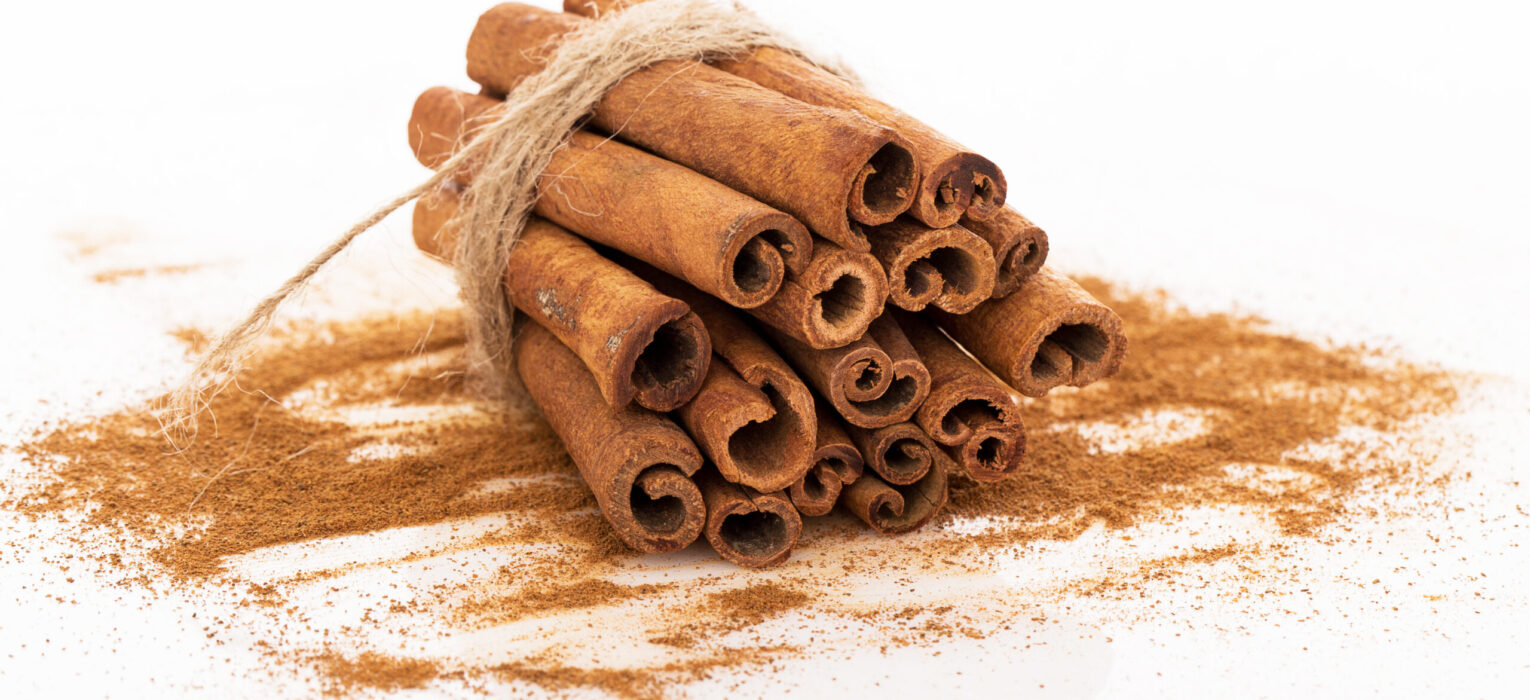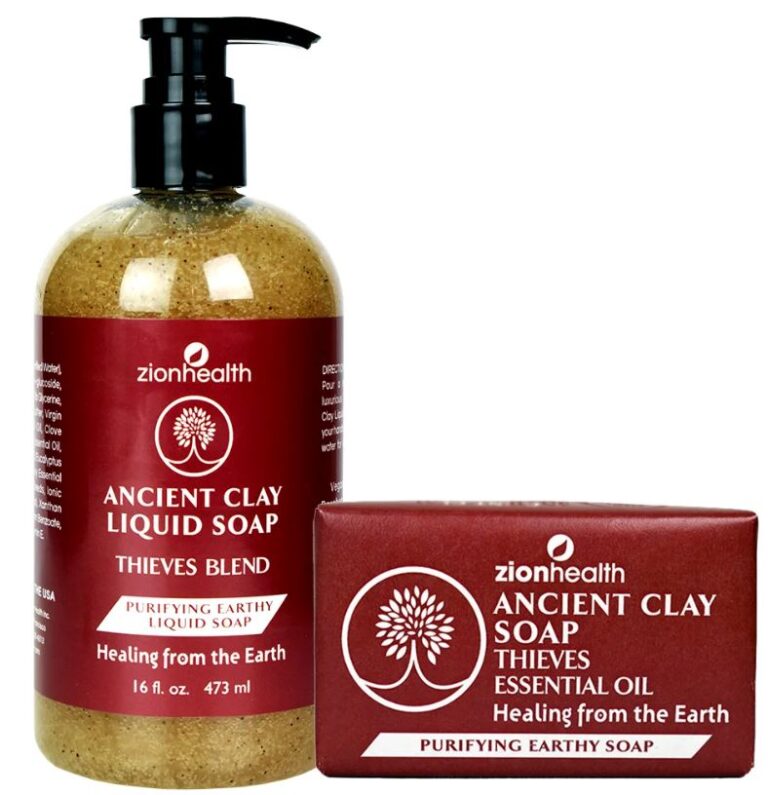Most people are surprised when they find out that cinnamon was more precious than silver or gold a couple of decades ago. Even though nowadays you can’t compare the monetary value of silver or gold to cinnamon, when you factor in the health benefits, cinnamon has more to offer you. It is not strange for you to find cinnamon in most kitchen cabinets, as it is a popular spice known for its aroma. Other than that, are you familiar with the health benefits of cinnamon?
While clinical trials on cinnamon are still underway, this ingredient has shown its ability to provide human beings with several health benefits over the years. Below, we will introduce you to the many healing powers of cinnamon and interesting facts you should know about this ingredient.
Let’s Start with Where Cinnamon Came From?
Cinnamon has a rich spiritual meaning rich in history that dates back thousands of years. There are biblical references of this ingredient in Revelations, Ezekiel, Proverbs, and Psalms. If you are an avid reader of the bible, you may have come across the word kannamon. This is what the Hebrews call it in their language. This shows how long cinnamon has been around.
That’s not all; cinnamon was a popular trading commodity back in the 1500s and 1600s. There was even a route to East Africa that was referred to as the cinnamon route. Back then, people used to trade cinnamon with gold and ivory. The cinnamon would be presented as presents to royals. One of its most popular uses was to treat colds. Arabs mainly traded it, and when Egyptians discovered this aromatic tree bark, they began using it in embalming rituals.
An essential part of cinnamon’s history is primarily grown in Ceylon, modern-day Sri Lanka. It was such a hot commodity that the Portuguese monopolized its growth when they invaded Ceylon in the 1500s. A century later, the Portuguese were ousted by the Dutch, who continued growing this product. They were so invested in cinnamon that they destroyed other plantations to be the only producers. After a while, people realized that cinnamon could thrive in different parts and other nations began producing it locally.
What are Some Superstitions that Revolve around Cinnamon?
Some people believe that cinnamon draws good fortune and luck; that’s why you may find people sprinkling it in their wallets, believing that it will attract money or help you find a job. Even though these superstitions are debatable, these beliefs only prove how influential people think cinnamon is.
Scientifically Proven Health Benefits of Cinnamon
Even before scientific research on cinnamon, it was used in the 16th century to treat sore throats and colds. Fast forward to the 21st century; research has been able to identify a compound found in this spice known as cinnamaldehyde that is responsible for cinnamon’s medicinal properties.
There are two main types of cinnamon. We have Ceylon cinnamon, known as true cinnamon, because it is the strain grown in Sri Lanka. It is extracted from the Cinnamomum, which is the inner bark of cinnamon trees. The other type is Cassia cinnamon which is popularly found on supermarket shelves.
Antioxidants play a pivotal role in preventing damage to cells caused by free radicals that lead to cancer, heart disease, and Alzheimer’s. Considering how rampant these diseases are, taking cinnamon rich in antioxidants can help fight these free radicals in your body. Did you know that cinnamon contains more antioxidants than oregano and garlic?
Above, we have already told you how cinnamon fights free radicals that cause heart disease. It also goes the extra mile to reduce cholesterol levels, which stabilizes blood sugar and blood pressure, reducing the risk of cardiovascular disease.
The same antioxidants we talked about earlier are responsible for fighting inflammation. Cinnamon can therefore help your body fight infections while repairing damaged tissues.
For those with conditions such as diabetes, their bodies tend to resist insulin, which is tasked with transporting blood sugar from the bloodstream to the cells. Taking cinnamon daily increases your body’s sensitivity to insulin, thus preventing the body from resisting the effects of this hormone. As mentioned earlier, it also stabilizes blood sugar, and this helps with type 2 diabetes.
Taking several grams of cinnamon a day improves motor function, normalizes neurotransmitter levels, and protects neurons. These advantages reverse the effects of neurodegenerative diseases like Alzheimer’s. This health benefit was tested on mice with Parkinson’s disease, and cinnamon showed its power in treating and preventing neurodegenerative diseases.
From research and tests done on animal studies, cinnamon can reduce the growth of cancer cells. This is thanks to the antioxidants found in this ingredient. Even though it is yet to be tested on human beings, adding cinnamon to your diet will prevent uncontrolled cell growth.
Ever wondered why people praise cinnamon because of its anti-diabetic effect? Well, it’s because it mimics insulin and thus increases glucose uptake via body cells. Cinnamon also lowers the amount of glucose entering the body. This paired up with its ability to lower blood sugar, cinnamon is one of the few ingredients and spices with a powerful anti-diabetic effect. To reap these benefits, take at least three grams of insulin per day.
Very few medicinal plants can fight HIV-infected cells. Cinnamon is one of them. This virus weakens the body’s immunity; cinnamon, especially the Cassia strain, can help fight it off. When taken alongside ARVs, cinnamon will attack the virus and increase the strength of your white blood cells. Cinnamon extracted from Cassia varieties is thought to help fight against HIV-1, the most common strain of the HIV virus in humans.
A laboratory study looking at HIV-infected cells found that cinnamon was the most effective treatment of all 69 medicinal plants studied
Human trials are needed to confirm these effects.
Women often experience cramps and pain in the abdomen area. Period pain is known as Dysmenorrhea, and it can occur before or during the menstrual cycle. The leading cause of Dysmenorrhea is the release of a hormone-like lipid called Prostaglandins. Prostaglandins cause contractions in the uterus to help the uterus lining shed and thus, may manifest acute pain. Cinnamon oil helps to reduce inflammation and provides relief from menstrual cramps.
We are exposed to tons of bacteria every day. If you take cinnamon regularly, you don’t have to worry about bacterial infections because cinnamon has antimicrobial effects that will keep you safe from respiratory, tract, and stomach infections.
What are the Key Properties of Cinnamon?
To gauge cinnamon’s effectiveness in treating a wide range of chronic conditions, we must look into some of its fundamental properties. You may know that cinnamon contains antimicrobial, anti-inflammatory, antioxidant, and anti-diabetic properties. But how do these properties better your health? Keep on reading to find out.
Antioxidant – We had to start with the most popular property of cinnamon. The antioxidant compounds found in cinnamon fight free radicals that increase as we grow old. Being a spice rich in antioxidants, cinnamon should be part of your everyday meals if you want to prevent chronic conditions.
Anti-cancer – The active ingredient cinnamaldehyde is known to destroy cancerous cells in the lungs, breast, colon, and ovaries. Overall, cinnamon minimizes cancer cell growth and induces DNA repair.
Anti-inflammatory – Cinnamon initiates its anti-inflammatory properties by preventing nitric oxide production in the central nervous system that causes inflammation in the body. Cinnamon’s anti-inflammatory properties have been used for the past century. And unlike other properties that are yet to be confirmed to work on human beings, this is a benefit you can be assured of receiving from taking cinnamon.
What are Cinnamon’s Effects on Certain Illnesses?
Rheumatoid Arthritis – When it comes to treating arthritis, cinnamon isn’t a new remedy. The Chinese started using it as early as in the 18th century. Not much is known about how cinnamon relieves arthritis, but a study by Panwang Liu shows that cinnamon works by suppressing the effects of pro-inflammatory cytokines.
Type 2 Diabetes – Earlier, we mentioned that cinnamon imitates insulin, and that’s how it improves glucose uptake. A polymer known as methyl hydroxyl chalcone is responsible for increasing the fat cell’s responsiveness to insulin. Cinnamon also stabilizes blood sugar, and this contributes to help fight diabetes and prevention.
Alzheimer’s – Cinnamon works like medication developed to treat this condition. It blocks the development of toxic amyloid polypeptide oligomers, which scientists have reason to believe is the cause of Alzheimer’s. When taken orally, cinnamon can slow down the effects of Alzheimer’s, and if used alongside recommended medication, the patient can notice an improvement in motor function, speech, and memory.
What’s Better – Ceylon or Cassia Cinnamon?
It’s not just with cinnamon, but all medicinal plants have various strains which give different results when used. Between the two, we would highly recommend Ceylon. There is a reason why it is referred to as true cinnamon. Cassia is rich in a compound known as coumarin that has several side effects when taken in large quantities.
Are There Downsides of Taking Too Much Cinnamon?
As you can see from above, cinnamon is a great spice that offers plenty of health benefits. However, taking too much of it can do more harm than good. By now, you already know that there are two types of cinnamon, Ceylon and Cassia. Cassia is cheaper than Ceylon, and that’s why it’s more popular. The most significant difference between the two is that Cassia or regular cinnamon can have severe side effects when you take too much of it. The side effects of consuming more than recommended amounts of Cassia cinnamon include;
- Liver Damage– According to research, too much Cassia cinnamon can cause liver damage, and coumarin plays a vital role in this. A teaspoon of Cassia contains up to 18 milligrams of coumarin. And an average adult should only take 5mg of coumarin per day.
- Allergic reactions – The compound called cinnamaldehyde which gives cinnamon its taste and flavor, can cause allergic reactions to some people. One can develop mouth sores, itching, burning, and swelling of the gums. Even though these allergic reactions aren’t life-threatening, they can be inconvenient, especially if you get them every time you take cinnamon.
- An increase in the risk of getting cancer – Cinnamon helps with cancer treatment and prevention; however, high doses of the typical cinnamon can cause cancer in the lung, kidneys, and liver. Coumarin is also the culprit in this side effect.
- Respiratory complications – Cinnamon is often grounded into finer particles to be easily absorbed into the food. Because it’s too fine, there is a possibility of inhaling it, which can lead to respiratory issues like coughing and difficulty in breathing. The cinnamaldehyde compound can irritate the throat and make matters worse. You must handle cinnamon with care, especially if you have got breathing issues.
- Too much cinnamon significantly lowers blood sugar – Yes, cinnamon will stabilize blood sugar, as long as you take the recommended dosage. But if you over-consume it, cinnamon will drastically drop your blood sugar levels. This is even more likely to happen if you are o diabetes medication.
- It can affect how other medication works – You need to be very careful when incorporating cinnamon as an herbal medicine. In the case of cinnamon, if you take it alongside other medication such as paracetamol that causes liver toxicity, the coumarin in cinnamon can accelerate liver damage. And this is the same thing that will happen when you take too much cinnamon with diabetes medication.
Is It Advisable to Take Dry Cinnamon?
This is an unsafe practice that can have adverse side effects. Dry cinnamon can quickly get into your lungs and cause permanent damage. It can also irritate the throat and leave you gagging and choking, which is equally very dangerous. Avoid taking dry cinnamon for the sake of your health.
How Much Cinnamon Should I Take to Enjoy Its Health Benefits?
This will depend on the type of cinnamon you are taking. Regular cinnamon contains high amounts of coumarin and shouldn’t be taken in large quantities. Taking more than a teaspoon of Cassia cinnamon per day is wrong as this can have up to 18 mg of coumarin. And adults should take up to 7 grams of coumarin per day.
On the other hand, Ceylon cinnamon contains tiny traces of coumarin, and one can take a teaspoon per day without worrying about side effects. This is not recommended as Ceylon cinnamon contains other ingredients that can lead to complications if taken in excess. Stick to small amounts and if you want to enjoy the health benefits of cinnamon, only use it as a spice.
Top Cinnamon Products for Better Health
After seeing how powerful cinnamon is, are you interested in enjoying the benefits this ingredient offers? Well, here are some cinnamon supplements that can help you treat and prevent various conditions while improving your health.
1. Cinnachrom – Formulated to Support Sugar Metabolism
Cinnachrom is an organic supplement that boosts sugar metabolism and supports metabolic balance with cinnamon as its main ingredient. Thanks to cinnamon’s ability to imitate insulin, it controls the glucose levels in the blood, which can aid in the prevention of type 2 diabetes.


2. Feet Treat Extreme with Natural Cinnamon Oil
Feat Treat Extreme relies on cinnamon’s antimicrobial and anti-inflammatory properties to kill bacteria, fungus, and toxins and reduces inflammation and pain. If your feet are hurting, Feet Treat Extreme will offer you immediate relief. Plus, it will heal damaged skin, hydrate, and moisturize it while getting rid of flakes.
Other than alleviating pain, the cinnamon oil gets rid of foul odor and improves mental wellness thanks to its aromatic scent. Other notable ingredients that enhance the effects of cinnamon oil include pure calcium montmorillonite clay, sunflower oil, jojoba oil, white tea extract, sunflower oil, cocoa butter, and many others.
3. Thieves Blend Soap Combo
This combo contains ancient clay natural soap and ancient clay liquid soap. If it’s a stress relief that you are after, our soaps can offer you this and much more. This soap combo also gets rid of pathogens and bacteria from your skin, ensuring clean and healthy. The cinnamon is touched up with eucalyptus, lemon, and rosemary to give the soap a refreshing scent. As the creamy lather forms on your skin, it penetrates the layers to cleanse and exfoliate, revealing bright and soft skin.
Final Thoughts
Cinnamon is more than just a sweet-scented spice. As you can see from above, it has got tons of health benefits. Opt for true cinnamon with tiny amounts of coumarin to get the most out of this ingredient. The regular cinnamon available in most stores has high amounts of coumarin and shouldn’t be taken in large quantities, as this can have adverse side effects. Irrespective of which type of cinnamon you settle on if you want to enjoy its health benefits, use it as a spice as well as a supplement. And don’t take more than your body can handle
Make Better Health Choices with Daily Use of Zion Health and Beauty Products.
So, as we outlined today, cinnamon is known for its therapeutic benefits and is widely used in treatments for various health conditions. However, it has many skin and beauty benefits as well. Cinnamon powder benefits your skin in many ways! It is loaded with antibacterial properties to reduce skin infections like acne, eczema, and rashes. Having a slightly coarse texture, cinnamon can also exfoliate the skin and remove the dead cells. You can use a simple cinnamon mask by mixing the powder with some rose water and the dark/light corn syrup or rice syrup (the vegan alternative to honey) and apply it evenly to the face.
Lastly, cinnamon can stimulate hair growth by improving blood circulation. It is also rich in anti-inflammatory and anti-microbial properties, reducing scalp problems like dry flakes, dandruff, and itchy scalp. You can use this powder by mixing it with coconut oil and massaging it on your scalp.
Using cinnamon for its optimal health and wellness benefits to using Zion Health Products will charge and heal your body inside and out, making you feel a sense of renewing at the time of every use.
All Zion Health Products are vegan, organic, contain no parabens, are made with all-natural ingredients and are cruelty-free.
Stay Up to Date with The Latest in News Your Body and Skin Can Use.
Check out some of our other blog posts for helpful information regarding skin health, and the maintenance of a healthier lifestyle. We have talked about in the past how important is it to have a proper morning and nighttime skincare routine, to main your skin’s health and vitality.
The use of cinnamon has some powerful beauty, health, and wellness benefits. It is not something that you would think of off the top of your head to achieve such benefits as you would vitamin C. Similarly, to cinnamon, clay is an ancient treatment for various health conditions. Plus, it has minimal side effects when you use the recommended amount. Using cinnamon and clay will make you feel reinvigorated inside and out. Read our blog, “Everything You Should Know About Clay Eating,” to learn more in-depth about the fantastic benefit clay can offer your body.




